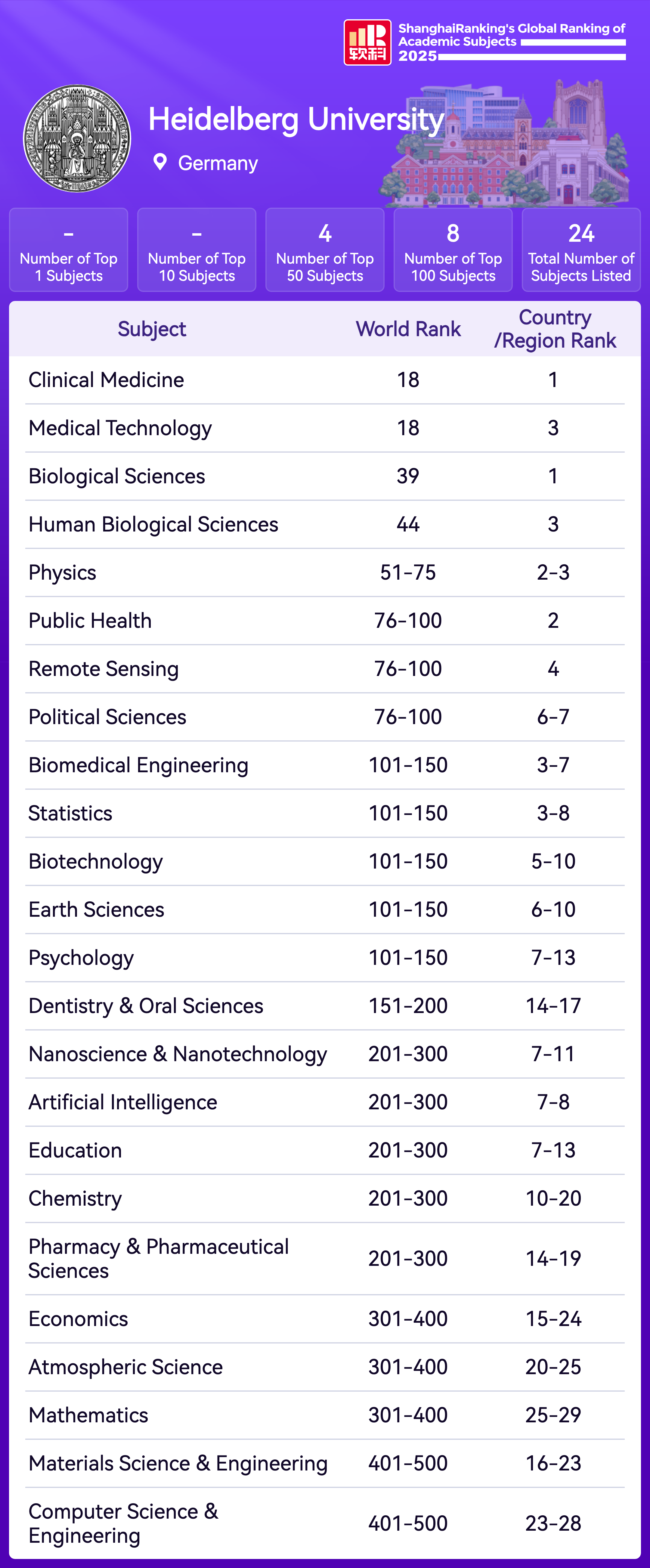 51
51 


Heidelberg University – A Tradition for the Future Established in 1386, Heidelberg University – also known as Ruperto Carola – is Germany’s oldest university and one of Europe’s most research-intensive institutions. Its successes in both the Excellence Initiative and the Excellence Strategy, and in internationally recognised rankings substantiate the leading role and excellent reputation of Heidelberg University in the academic, scientific and research landscape. In educating students and advancing outstanding young researchers, Ruperto Carola emphasises research-based teaching and structured doctoral training programmes in its graduate schools. Heidelberg University is a comprehensive research university. Its broad subject spectrum includes the humanities, law, the social and behavioural sciences, the life sciences, medicine and the natural sciences. With more than 180 degree programmes in twelve faculties, Heidelberg offers a preeminent array of subject combinations. The university is committed to advancing exceptional individual disciplines, promoting dialogue beyond traditional disciplinary boundaries, and turning research findings to good use for society and the economy. In this endeavour, it also relies on strong partners outside the university. Research at Heidelberg University is focused on four major interdisciplinary fields: Field of Focus 1 – Molecular Foundations of Life, Health and Disease; Field of Focus 2 – Patterns and Structures in Mathematics, Data, and the Material World; Field of Focus 3 – Cultural Dynamics in Globalised Worlds; Field of Focus 4 – Self-Regulation and Regulation: Individuals and Societies. Heidelberg University’s focus on international cooperation is visible in its worldwide network of research and teaching collaborations: 27 institutional partnerships at the overall university level and exchange arrangements with over 450 universities throughout the world underscore the strength of Ruperto Carola’s international ties. A multitude of research and teaching collaborations are also established at the faculty, institute and chair levels. About 20 percent of the university’s students and a third of those completing a doctorate come from abroad. Heidelberg’s cosmopolitan and student-friendly atmosphere is one of the city’s distinguishing characteristics. Heidelberg is a lively centre of the Rhine-Neckar Metropolitan Region and is marked by its high density of research-intensive industry and scientific research institutions. These institutions, working alongside the university, form an internationally competitive research network, providing a wide assortment of contact and cooperation possibilities for Heidelberg University researchers and students. With its aspiration of combining European university values such as autonomy and freedom of research and teaching with future-oriented scientific concepts, Heidelberg University is building a bridge to the future – The Future. Since 1386.
 51
51 
| Subject | Rank |
|---|---|
Clinical Medicine | 18 |
Medical Technology | 18 |
Biological Sciences | 39 |
Human Biological Sciences | 44 |
Physics | 51-75 |
Remote Sensing | 76-100 |
Public Health | 76-100 |
Political Sciences | 76-100 |

